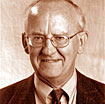Commentary on Zechariah 9:9-12
For me at least, this is one of those biblical texts that cannot be read without hearing music. In the midst of puzzling over the visions and sayings of Zechariah, it comes as a refreshing surprise to find the words of our lectionary text for today.
With Zechariah 9:9, I hear a soprano somewhere singing that melody, “Rejoice, rejoice, rejoi-oi-oi-oi-oice greatly!” from Handel’s Messiah. The great composer’s instincts were correct. This is one of those Old Testament texts properly classified as “messianic.”
The Royal Psalms as Seedbed for Messianic Hope
We may recall that the seedbed for messianic hope in the Old Testament was the royal psalms, that is, psalms that played a role in the life of the king. These psalms originated and originally functioned during the time of the monarchy, from David (1000 B.C.E.) to the destruction of Jerusalem in 587 BCE. They include psalms for a royal wedding (45), an inauguration (2, 72, 101, 110), and other occasions (the list also includes 18, 20, 21 89, 132, 144). These psalms speak of the king in extravagant language, declaring that he will be victorious and rule over the nations of the earth (2:8-9; 72:8-11,19) with justice and righteousness (72:1) and with special concern for the poor and powerless (72:2-4, 12-14). He will bring about shalom (72:3). The king is called messiah, translated “anointed” (2:2; 45:7) and even son of God (2:7), seated at the LORD’s right hand (110:1). These extravagant expectations laid a “magnificent purple robe” on the shoulders of each of the young successors of David.1
As history played itself out, however, king after king failed to measure up to these expectations. But when the period of the monarchy had passed, with the fall of Jerusalem in 587 BCE, the royal psalms continued to be used in the people’s worship, now expressing hope for an ideal king who would come in the future.
Messianic Hope in the Prophets
The prophets gave these hopes new expression. Isaiah spoke of a king coming from the line of David who would establish peace and rule with justice and righteousness forevermore (Psalms 72; 89:4; Isaiah 9:2-7). He spoke of a new David, a “shoot from the stump of Jesse,” who would be concerned for the poor, rule with righteousness, and bring about shalom, pictured as peace among people and animals (Psalm 72; Isaiah 11:1-9). Jeremiah promised a “righteous branch” from David’s line, who would rule with justice and righteousness and bring about a time of peace (Psalms 72; 89:4; Jeremiah 23:5-6). Micah identified David’s home town Bethlehem as the place from where the king would come and promised that he would rule to the ends of the earth and bring about peace (Psalm 2; Psalm 72; Micah 5:2-5). Today’s lectionary text should be seen in the context of this great stream of hope for a coming Messiah.
The Book of Zechariah
The book of Zechariah falls into two major sections. The date for the material in “First Zechariah,” Chapters 1-8, is given as from the second to the fourth years of Darius, who ruled the Persian empire from 522-486 BCE, thus 520-518 BCE. Dating of the material in “Second Zechariah,” Chapters 9-14, is not so easy. Here is an anonymous collection of sayings, dating from some time later than the material in chapters 1-8.
Chapters 9-14 divide into 9-11 and 12-14, each section introduced as “An Oracle.” Chapter 9 leads off with a series of prophetic sayings against a string of foreign cities whose residents are enemies of Jerusalem; compare Amos 1-2. The LORD is portrayed here as the “Divine Warrior,” sweeping down the Mediterranean coast and destroying Jerusalem’s enemies (1:1-8).
Reading the Text
The lectionary text for today picks up at this point. News of the destruction of these enemies is cause for rejoicing in Jerusalem, here named “daughter Zion” or “daughter Jerusalem.” There is another cause for rejoicing. Triumphant and celebrating victory, a king is portrayed as entering the city. There is something unusual about this king. He does not come mounted on a white charger, riding high and looking out over his people. This king comes “humble and riding on a donkey.”
But make no mistake about it. Though a king of a different sort, this is the king! Verse 10 begins to sound the familiar messianic melodies from the royal psalms and the earlier prophets. He will initiate a disarmament program; compare Isaiah 2:2-5. His rule will result in shalom, peace, for all nations, extending “from sea to (shining!) sea”; compare Psalms 2, 72 and Isaiah 9.
Zechariah 9 concludes with more good news for the people of Jerusalem, announcing freedom for prisoners (11-12), further victories (13), and goodness and beauty for all (16-17).
Toward a sermon: “What’s In Our Name?”
What might all of this mean for us? All four Gospels identify the events of what we call Palm Sunday as the fulfillment of Zechariah’s prophecy (Mark 11:1-11; Luke 19:28-38; see especially Matt 21:1-11 and John 12:12-19). We ourselves are those people who identify the one who rode on that donkey as the long-awaited King or Messiah, promised in those writings we call our Old Testament.
As Christ-ians or Messiah-ists, we are people who confess that this–Jesus who was crucified and raised from the dead, is our Messiah, our King, our Master. We confess that through his death this Jesus has saved us from sin, death, and all the powers of evil. We are those people who thank God for sending this Jesus the Messiah into the world for us so that we Messiah-people need not live haunted by guilt and sin and so that death will not for us be the end.
1Gerhard von Rad, Old Testament Theology I (New York: Harper & Row, 1962) 323-324.

July 6, 2008